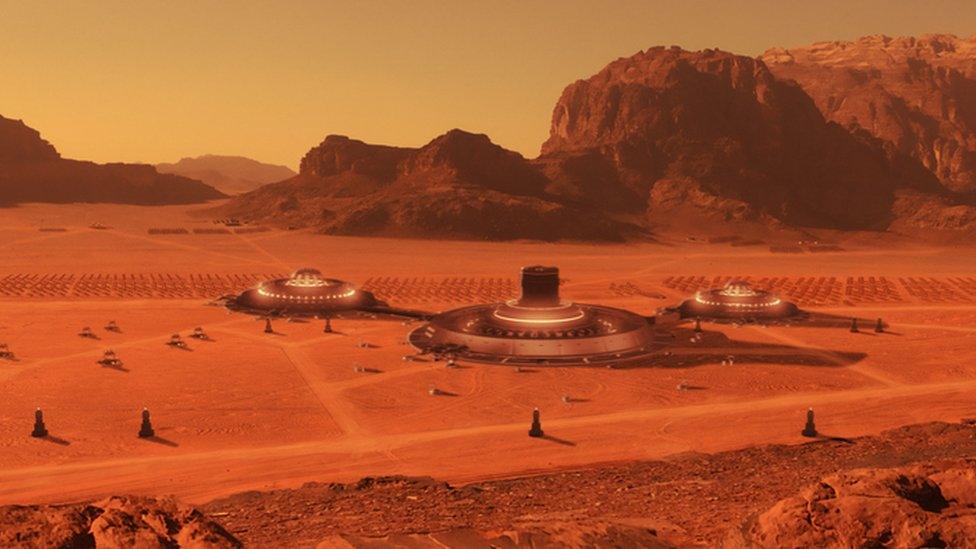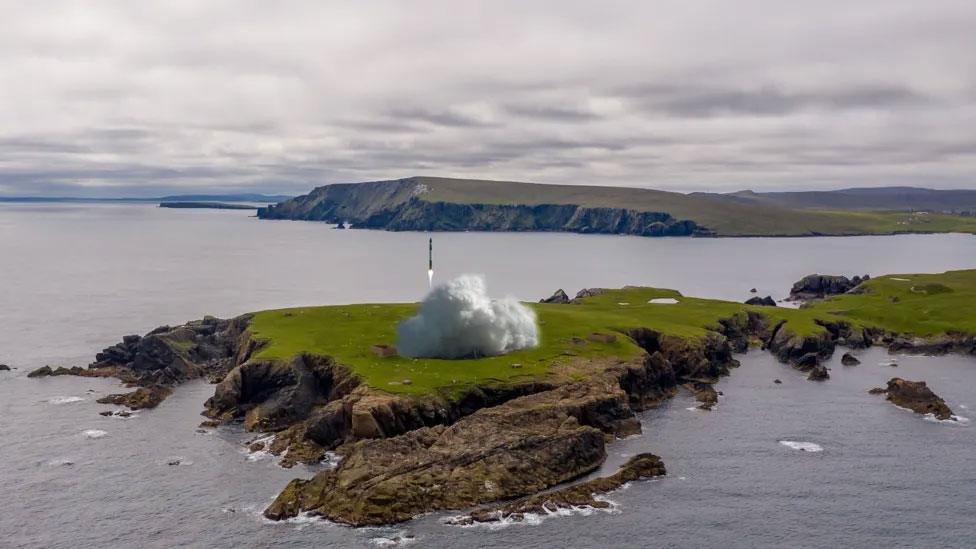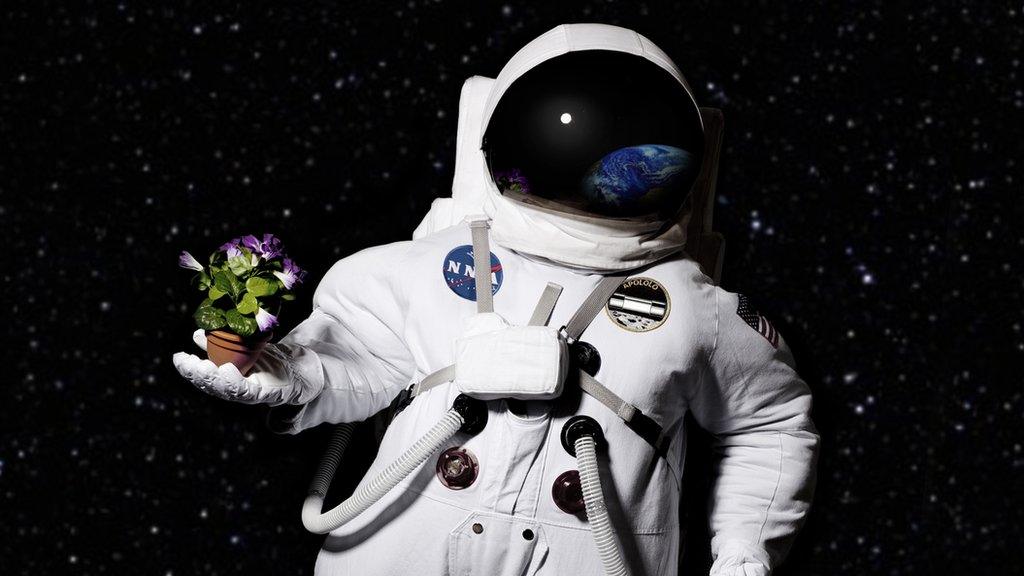New survey shows most young kids believe they'll travel to space
- Published
- comments

Could you live on Mars?
Do you think you'll travel to space in your lifetime?
New research from tech education group RM Technology in May found that more than half (57%) of children aged 4 to 7-years-old believe that they'll travel to space in their lifetime.
The findings also show that almost a fifth (19%) of kids think that humans will be able to live on another planet in the next 10 years.
When kids were asked about which planet they'd like to live in if they had the choice, Mars was the most popular option, with over a third picking the Red Planet.
But if you had the chance to live on a new world, would you? Have your say in the vote below!
If you cannot see the vote, click here..
The survey was carried out by Opinion Matters, and involved more than a thousand primary school children and their parents or guardians.
Trained astronaut and teacher Mike Mongo, who was part of the research, hopes that the figures will inspire pupils to learn more about space and prepare for the possibility of life on another planet.
For future space travellers, Mike says: "Creativity, experimentation, and exploration are very important skills needed in every astronaut."
But he adds: "Science and technology isn't just important for children who want to be astronauts and scientists. The creativity and exploration skills that these subjects improve can help students to imagine themselves as artists, business leaders, inventors, and more!"

The first successful test of the UK's brand new spaceport recently took place
It comes as Nasa's Artemis project aims to explore the Moon further with the hope of setting up space travel to Mars.
The fully-crewed Artemis II mission due to blast off in September 2025, which will see a team circle round the Moon and return home.
And Artemis III hopes to make history by landing the first woman and first person of colour on the lunar surface.
- Published29 March 2024

- Published13 February 2023

- Published8 June 2023

